Zhuoran Lin
Chinese SimpleQA: A Chinese Factuality Evaluation for Large Language Models
Nov 13, 2024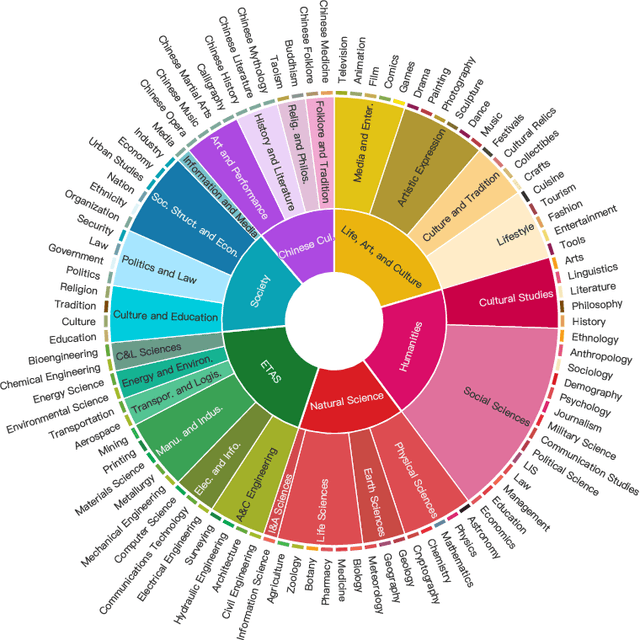


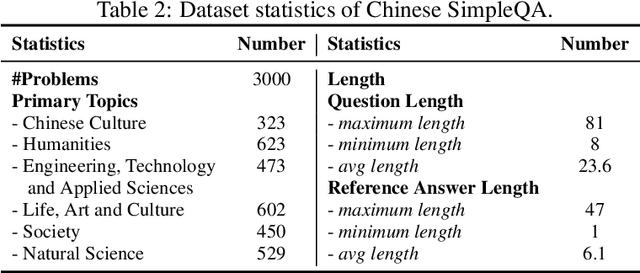
Abstract:New LLM evaluation benchmarks are important to align with the rapid development of Large Language Models (LLMs). In this work, we present Chinese SimpleQA, the first comprehensive Chinese benchmark to evaluate the factuality ability of language models to answer short questions, and Chinese SimpleQA mainly has five properties (i.e., Chinese, Diverse, High-quality, Static, Easy-to-evaluate). Specifically, first, we focus on the Chinese language over 6 major topics with 99 diverse subtopics. Second, we conduct a comprehensive quality control process to achieve high-quality questions and answers, where the reference answers are static and cannot be changed over time. Third, following SimpleQA, the questions and answers are very short, and the grading process is easy-to-evaluate based on OpenAI API. Based on Chinese SimpleQA, we perform a comprehensive evaluation on the factuality abilities of existing LLMs. Finally, we hope that Chinese SimpleQA could guide the developers to better understand the Chinese factuality abilities of their models and facilitate the growth of foundation models.
MT-Bench-101: A Fine-Grained Benchmark for Evaluating Large Language Models in Multi-Turn Dialogues
Feb 22, 2024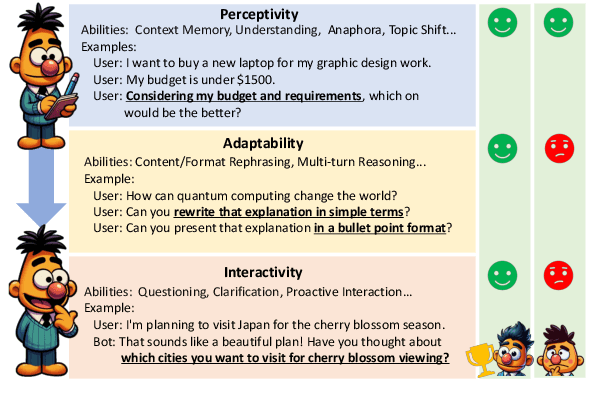
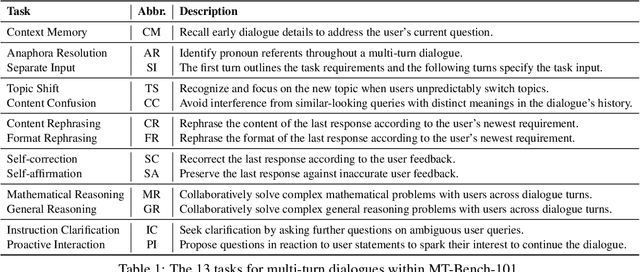
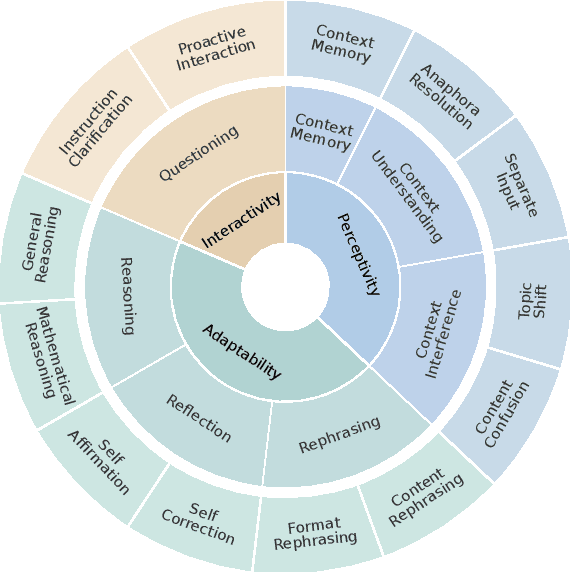
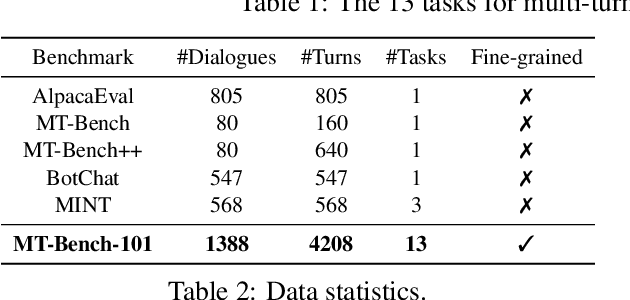
Abstract:The advent of Large Language Models (LLMs) has drastically enhanced dialogue systems. However, comprehensively evaluating the dialogue abilities of LLMs remains a challenge. Previous benchmarks have primarily focused on single-turn dialogues or provided coarse-grained and incomplete assessments of multi-turn dialogues, overlooking the complexity and fine-grained nuances of real-life dialogues. To address this issue, we introduce MT-Bench-101, specifically designed to evaluate the fine-grained abilities of LLMs in multi-turn dialogues. By conducting a detailed analysis of real multi-turn dialogue data, we construct a three-tier hierarchical ability taxonomy comprising 4208 turns across 1388 multi-turn dialogues in 13 distinct tasks. We then evaluate 21 popular LLMs based on MT-Bench-101, conducting comprehensive analyses from both ability and task perspectives and observing differing trends in LLMs performance across dialogue turns within various tasks. Further analysis indicates that neither utilizing common alignment techniques nor chat-specific designs has led to obvious enhancements in the multi-turn abilities of LLMs. Extensive case studies suggest that our designed tasks accurately assess the corresponding multi-turn abilities.
 Add to Chrome
Add to Chrome Add to Firefox
Add to Firefox Add to Edge
Add to Edge